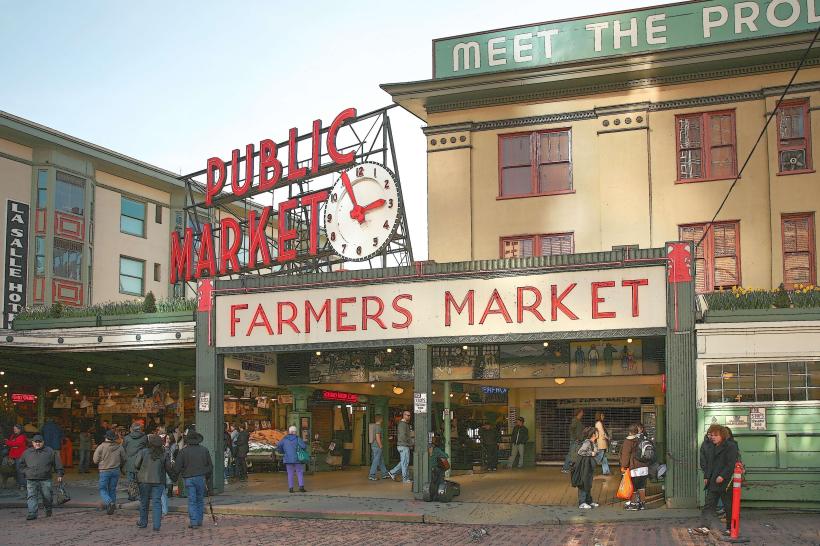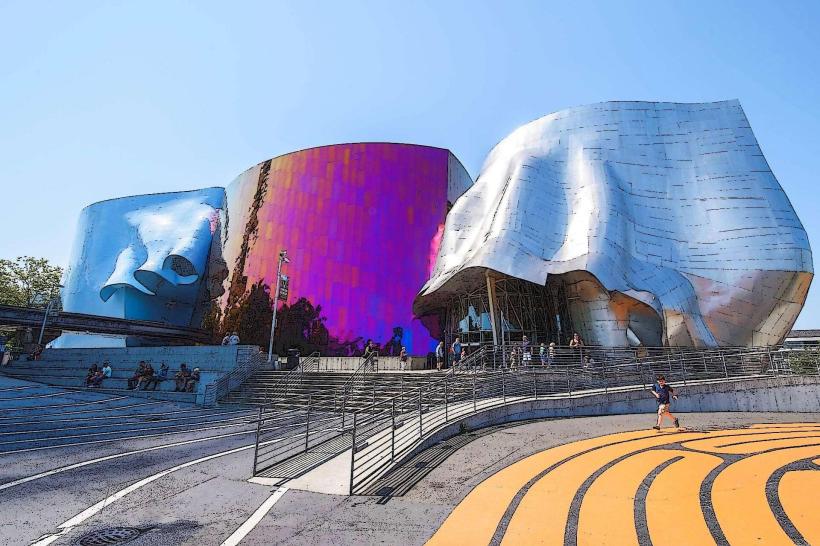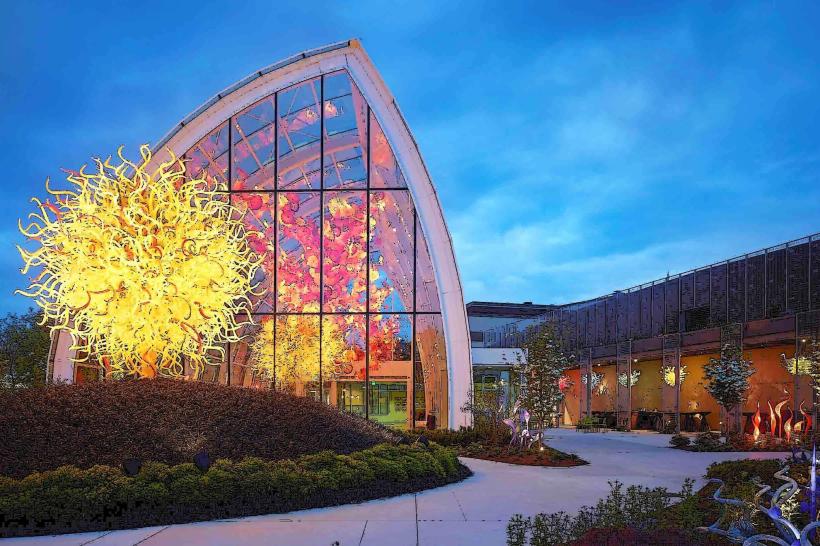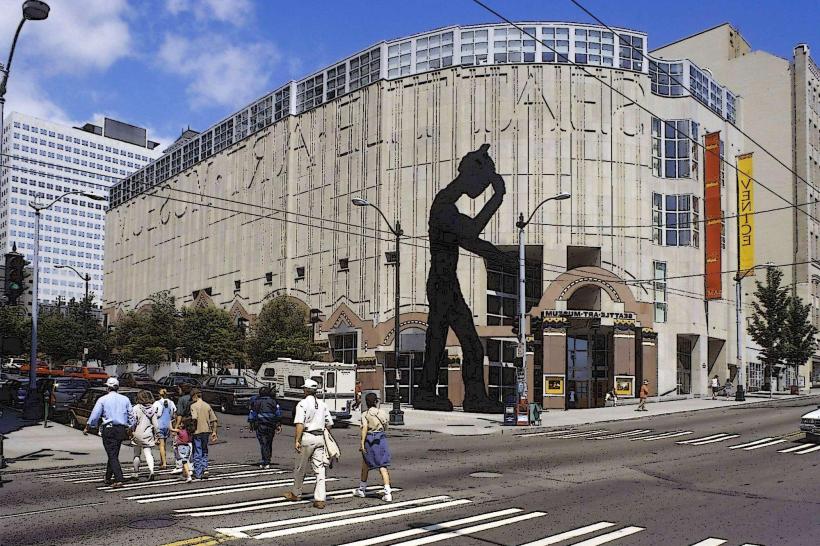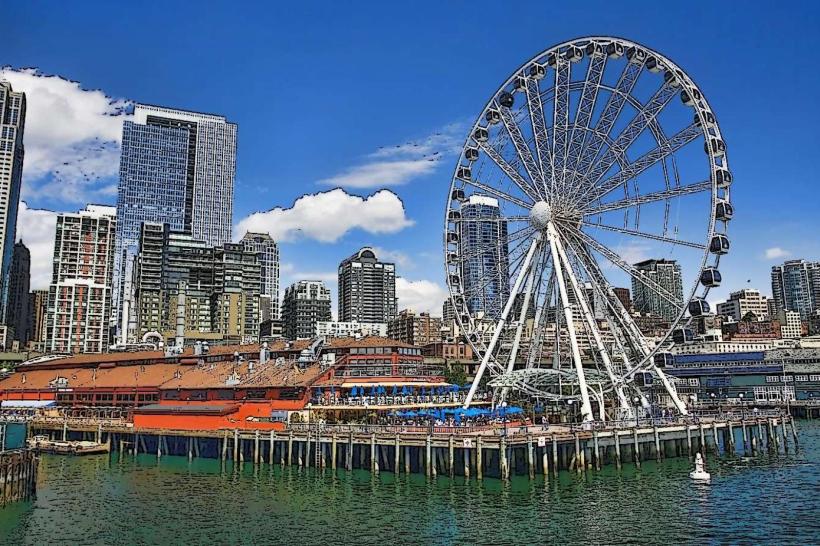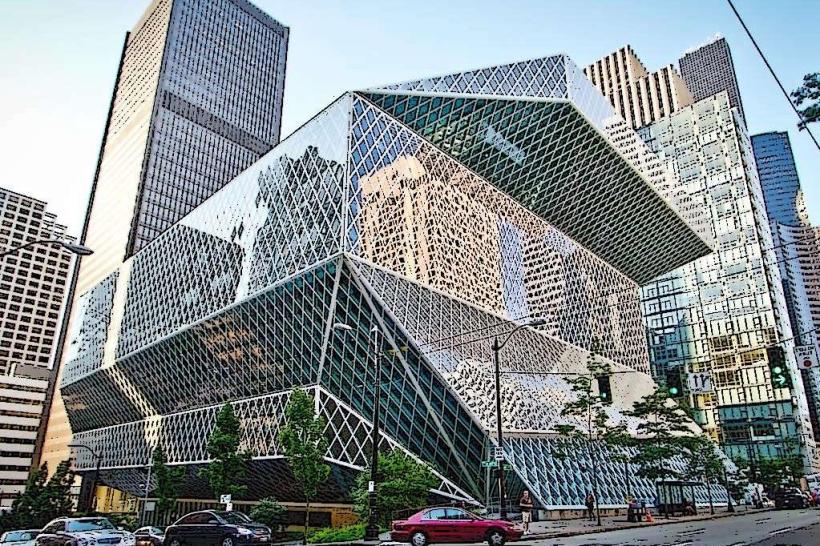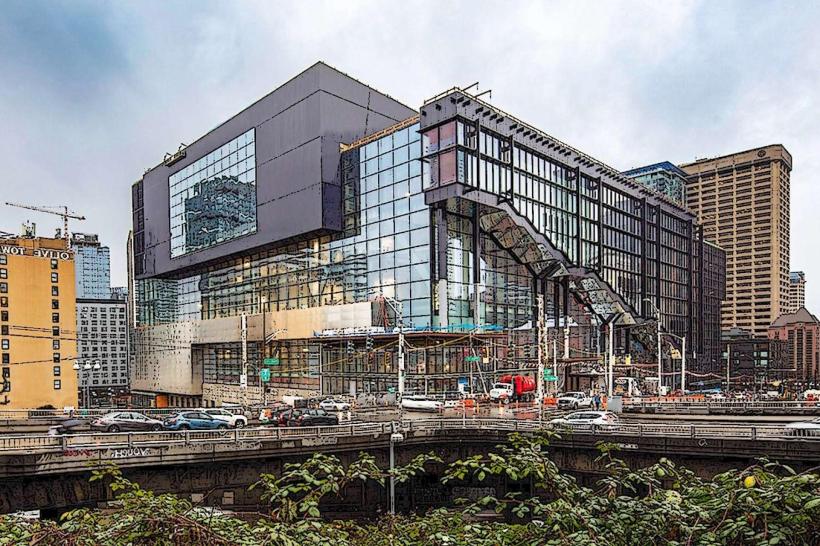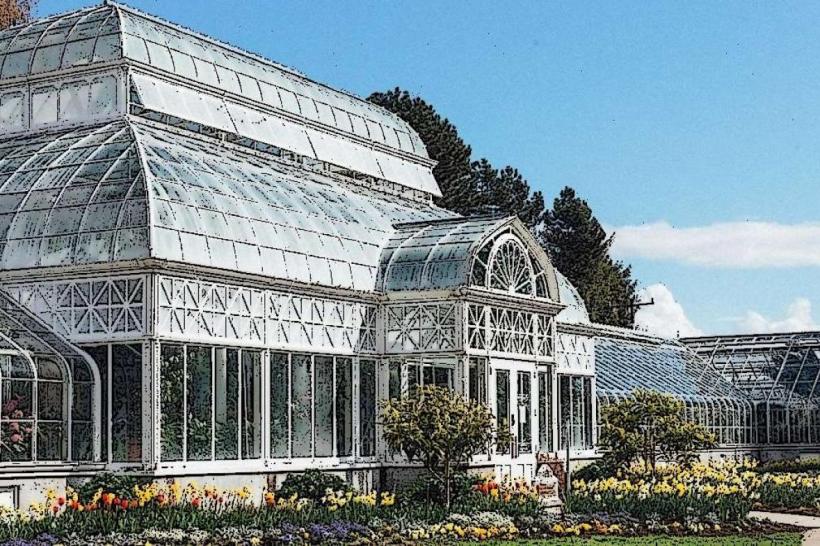Information
Landmark: Theo Chocolate FactoryCity: Seattle
Country: USA Washington
Continent: North America
Theo Chocolate Factory, Seattle, USA Washington, North America
Theo Chocolate Factory, once a landmark in Seattle’s Fremont neighborhood, was widely recognized as a pioneer in organic, fair-trade chocolate production in the United States. Founded in 2005, Theo Chocolate was among the first companies in the country to emphasize ethical sourcing, environmental sustainability, and high-quality artisanal chocolate making. The company gained a loyal following for its commitment to transparency in the supply chain, sourcing cacao beans directly from small farmers and cooperatives, primarily in West Africa and Central America.
Location and Facility
Theo’s flagship factory was housed in the historic Fremont Trolley Barn, a charming brick building located at 3400 Phinney Avenue North in Seattle’s vibrant Fremont district. The location itself was part of the company’s appeal - an industrial yet welcoming space where visitors could experience chocolate production firsthand. The factory included a retail store, a café, and a chocolate kitchen where various confections were handcrafted.
The design of the factory emphasized openness and education. Visitors could observe the chocolate-making process through large windows, watching cacao beans being roasted, ground, and crafted into bars and bonbons. The space was lively and interactive, with tastings, demonstrations, and chocolate-making classes offered regularly.
Production Philosophy and Products
Theo Chocolate was deeply committed to ethical and sustainable practices. It was the first organic fair-trade chocolate maker in North America, pioneering standards that became influential across the industry. The company worked directly with cacao farmers to ensure fair prices, environmentally friendly farming methods, and long-term partnerships, which helped improve the livelihoods of farming communities.
Their product range was diverse, including classic chocolate bars in dark, milk, and flavored varieties, as well as seasonal and specialty items like chocolate-covered nuts, truffles, and drinking chocolate. Theo was particularly known for innovative flavor combinations, such as sea salt, chili, and mint, which appealed to both traditional and adventurous palates.
Community Engagement and Education
Beyond production, Theo Chocolate played a significant role in community engagement. The factory was a hub for education about chocolate, sustainability, and fair trade. Visitors could participate in workshops and classes that explained the complexities of chocolate production, from bean to bar, and the importance of ethical sourcing.
The company also hosted events, school tours, and outreach programs that promoted awareness of social justice issues connected to the chocolate industry, including child labor and environmental degradation. This educational focus was a core part of Theo’s mission to connect consumers with the story behind their chocolate.
Recent Changes and Closure
In 2023, Theo Chocolate underwent a major transition when it merged with the American Licorice Company. This business move resulted in the closure of the Fremont factory, a significant blow to the local community and fans of the brand. Approximately 60 employees were laid off, and the physical factory space ceased operations.
The flagship retail store and confection kitchen, which had been a popular destination for both tourists and locals, also closed permanently in early 2025. Despite these closures, Theo Chocolate products continue to be available for purchase through online platforms and various retail outlets, though production has been relocated outside of Seattle.
Legacy and Alternatives
Theo Chocolate’s legacy as an ethical and innovative chocolate maker endures, despite the factory’s closure. It played a pioneering role in establishing organic fair-trade chocolate as a mainstream product in the U.S. and inspired other companies to adopt more responsible business practices.
For visitors and chocolate enthusiasts in Seattle who wish to explore artisanal chocolate-making experiences, alternatives include other local chocolatiers such as Seattle Chocolate Company, Spinnaker Chocolate, Indi Chocolate at Pike Place Market, and Intrigue Chocolate Co. These companies offer factory tours, tastings, and classes that continue the tradition of quality, craftsmanship, and education in the city’s vibrant chocolate scene.
Summary
Theo Chocolate Factory was more than just a production facility; it was a cultural and educational hub dedicated to sustainable chocolate production and community connection. Its closure marks the end of an era in Seattle’s artisanal food landscape but leaves behind a strong influence on how chocolate is made and enjoyed with conscience and care. The factory’s legacy lives on through its products, ethical standards, and the inspired local chocolate community.



